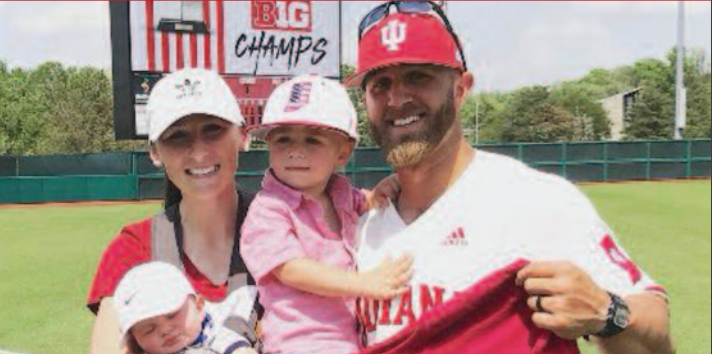
The first time I met Casey Dykes was after speaking to his Western Kentucky University baseball team. We quickly began a friendship and later traveled together on a baseball/mission trip to the Dominican Republic through SCORE International. Casey has made coaching stops at his alma mater(WKU), Virginia Military Institute, Indiana University and now he’s a hitting coach in the New York Yankees organization. Casey is an impressive young coach and possesses great knowledge and a passion for the game. The most impressive things about him, for me, are the character and devotion to his family. Recently, I had the opportunity to ask him some questions about his journey in baseball.
Keith Madison: You quickly made a name for yourself as a quality hitting coach. I know you have your own philosophy, but who are some of the coaches who have helped you develop your own style of coaching?
Casey Dykes: The players I’ve had around me the past six years have made as big of an impact on me as anybody. The trust and relationships we’ve formed have allowed me to try a lot of things and ask a lot of questions, but most importantly get honest feedback from them throughout the process. This has really helped me grow and learn how players learn.
Jeff Mercer, Hunter Bledsoe, Lantz Wheeler, and recently, Dillon Lawson have made a huge impact on how I teach hitting.
I could go through a huge list of coaches from football coaches I haven’t met, like Dabo Sweeney and Lincoln Riley, to past head coaches and current, friends, like Jonathan Hadra and Chris Finwood, who have helped mold my current coaching style.
KM: Hitting is arguably the most difficult thing in all of sports to do. Do you have any tips for coaches to help their hitters navigate through the mental ups and downs?
CD: Be the example, be transparent, and be trustworthy. Every player is an individual and getting to know each person on a deeper level than baseball is the only way to help each one of them on their journey through this very difficult game and ultimately, through life. We naturally, as coaches, want to try to solve everyone’s issues right away, but we have to slow down and realize that until the player trusts you, they won’t fully commit to your advice, and that usually takes time.
KM: If you could go back to your first year or two of coaching at the college level, what would you do differently?
CD: I would’ve definitely kept a video database. I watched a lot of players make some really neat adjustments. It would’ve been beneficial to have players track their progress and for me to be able to look
back at it as a reference. Secondly, I should’ve read and researched more early on. This goes for scientific research, self-development books, skill-development research, and information on elite strength trainers and athletes. I learned a lot through trial and error and I wouldn’t trade that. Those times helped be become a problem solver and improved my intuition. I believe I could’ve helped guys quicker and I regret those times, because you can’t get time back.
KM: How has your faith helped you with the sacrifices you and your family have made in your progression as a coach?
CD: Faith has kept me humble and fearless. My story is written, and I know the One who wrote it is far greater than I am. This allows me to attack each day with a purpose to impact the people who God allows me to encounter. Coaching is an avenue for me to lead young men daily and develop relationships with people from all different backgrounds. That’s what drives me. My wife is a superstar and I have two young boys at home who are supportive of this mission and a vital part of it. They are a driving force in every team I’m a part of and every decision we make. They push me to be a better man every day.
KM: Coaching can be both time consuming and demanding. What are some of the things you do to stay consistent and continue growing as a Christian coach?
CD: Prioritize your routine. This sounds easy, but it’s a constant battle in this profession, more than most. Everyone has the same amount of time in a day, but how you spend that time reflects what’s important to you. The ability to consistently self-evaluate and evolve is extremely important and eye opening. I’m constantly trying to hold myself to this standard even though I’ve yet to master it. We all have a different definition of what our “enemies” are that prevent us from this consistent growth, but you have to refuse to let the “enemy” in. IP